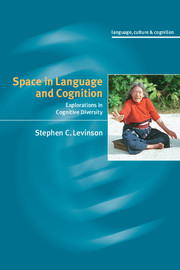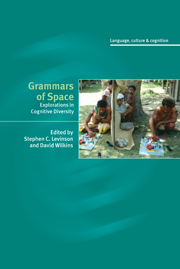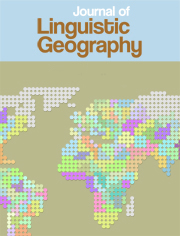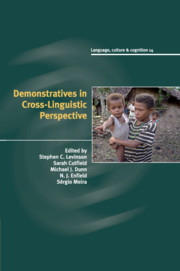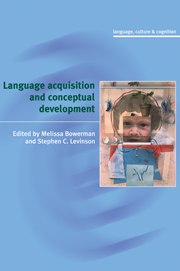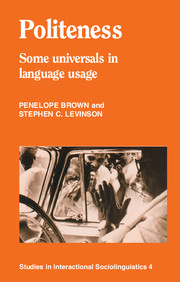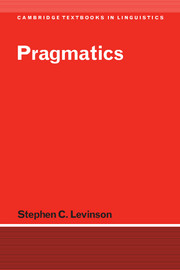Space in Language and Cognition
Languages differ in how they describe space, and such differences between languages can be used to explore the relation between language and thought. This 2003 book shows that even in a core cognitive domain like spatial thinking, language influences how people think, memorize and reason about spatial relations and directions. After outlining a typology of spatial coordinate systems in language and cognition, it is shown that not all languages use all types, and that non-linguistic cognition mirrors the systems available in the local language. The book reports on collaborative, interdisciplinary research, involving anthropologists, linguists and psychologists, conducted in many languages and cultures around the world, which establishes this robust correlation. The overall results suggest that thinking in the cognitive sciences underestimates the transformative power of language on thinking. The book will be of interest to linguists, psychologists, anthropologists and philosophers, and especially to students of spatial cognition.
- Was the first large-scale study which uses cross-linguistic differences to throw light on the relation between language and cognition
- Demonstrates that linguistic categories, conceptual categories and many aspects of behaviour cohere to form a single 'cognitive style'
Reviews & endorsements
"A fundamental part of this new-Whorfian movement has been Stephen Levinson's thinking about spatial language and cognition. It is valuable to have most of his arguments and data gathered together in this thought-provoking book."
-Nora S. Newcombe, Human Development
"Levinson's book will certainly stand as a textbook in the study of the relationship between language and cognition, and is rich and challenging reading...Those with an interest in the issue of linguistic variation will find an unusually well-documented and well-argued presentation of the actual variation in the domain of spatial reference."
-Ingjerd Hoem, Institute for Pacific Archaeology and Cultural History, The Kon-Tiki Museum, Anthropological Linguistics
Product details
April 2003Paperback
9780521011969
414 pages
226 × 159 × 25 mm
0.68kg
47 b/w illus. 25 tables
Available
Table of Contents
- Preface
- 1. The intellectual background: two millenia of Western ideas about spatial thinking
- 2. Frames of reference
- 3. Linguistic diversity
- 4. Absolute minds: glimpses into two cultures
- 5. Diversity in mind: methods and results from a cross-linguistic sample
- 6. Beyond language: frames of reference in wayfinding and pointing
- 7. Language and thought.

